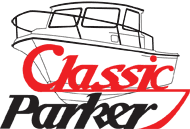msudigala
Member
Probably a silly question. What are some thoughts on what gas to put in boat. Will have a 2022, 2320 sc with yamaha 300. Website states 89 octane.

Short answer, NON ethanol, Marine Fuel Only, 90 octane in my area. You risk a very nasty "Phase Separation " in your vented non pressurized fuel tank with ethanol gas mixture.Probably a silly question. What are some thoughts on what gas to put in boat. Will have a 2022, 2320 sc with yamaha 300. Website states 89 octane.
Probably a silly question. What are some thoughts on what gas to put in boat. Will have a 2022, 2320 sc with yamaha 300. Website states 89 octane.
A friend of mine in the Keys saved a $1000 dollars putting cheaper ethanol fuel in his boat and 8 months later spent $1200 repeatedly removing and cleaning the water from the tank, replacing all fuel/water seperators. The water float alarm on the 300 Yamaha was triggered, almost got sucked into the engine. Not a pleasant experience. I drain the petcock on my Racor filter every other trip and remove a half a teaspoon of crud/water even with the marine fuel. I replace the filter every 50 hours.https://www.pure-gas.org/
I run 91 Octane Non Ethanol in EVERYTHING I own.
'15 F150 3.5 EB gets 2MPG better around town
'07 Mustang GT gets 3MPG better around town.
Fuel separation starts in 30days, as well as Octane dropping.
So your recommended 89 that you pumped is less than 89 in 30days.
Now here the real world happening.
You fill your boat up....You go boating and burn 25% of the tank out. You have intentions to go boating next weekend.
And then life gets in the way.....Always something that changes your plans. So the boat sits for 3 months.....or longer.... Fuel separation has happened.... Engine will not run correctly. High Pressure fuel pump has locked up due to this in it's resivor. Yea....I had this happen on a used engine I bought.
$500 for a new pump.......Marine shop rates are well over $100hr.
So....How much gas can you buy to make up for the repairs....and how much down time and aggravation?
I ran a 3 month experiment filling my car every week with marine fuel then alternating to ethanol. I got 3% better gas mileage matching the EPA data on non ethanol vs ethanol.https://www.pure-gas.org/
I run 91 Octane Non Ethanol in EVERYTHING I own.
'15 F150 3.5 EB gets 2MPG better around town
'07 Mustang GT gets 3MPG better around town.
Fuel separation starts in 30days, as well as Octane dropping.
So your recommended 89 that you pumped is less than 89 in 30days.
Now here the real world happening.
You fill your boat up....You go boating and burn 25% of the tank out. You have intentions to go boating next weekend.
And then life gets in the way.....Always something that changes your plans. So the boat sits for 3 months.....or longer.... Fuel separation has happened.... Engine will not run correctly. High Pressure fuel pump has locked up due to this in it's resivor. Yea....I had this happen on a used engine I bought.
$500 for a new pump.......Marine shop rates are well over $100hr.
So....How much gas can you buy to make up for the repairs....and how much down time and aggravation?
Thats to be expected, less btu's with E10.I got 3% better gas mileage matching the EPA data on non ethanol vs ethanol.
Enter your email address to join: